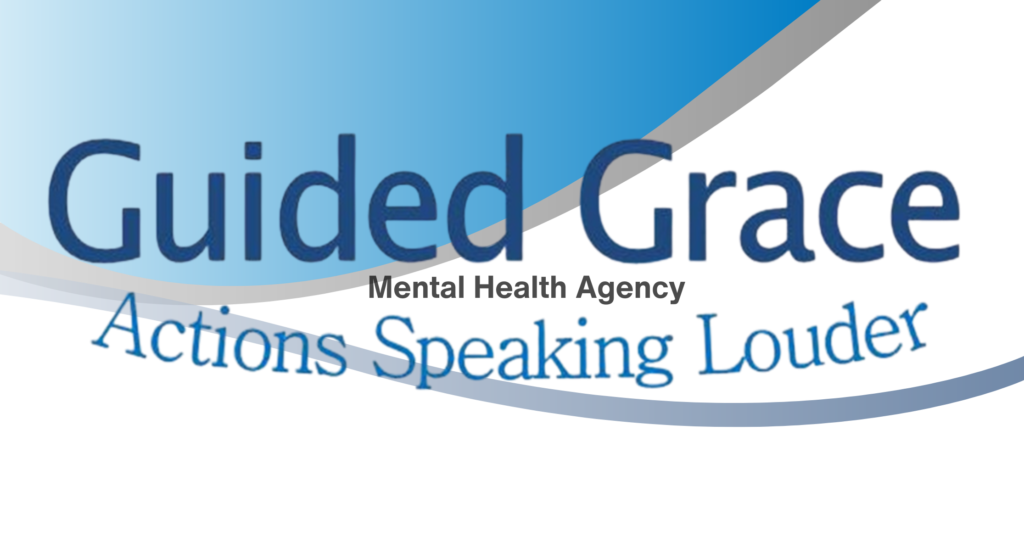Post-traumatic stress disorder is a neurological and psychological condition that, as its name suggests, is the result of a traumatic situation. These can be emotional threats or physical threats, like forms of abuse, car accidents, or experiencing warfare. Symptoms can develop on their own, while in other cases, they are triggered by something that reminds you of the traumatic event, like a familiar sight, sound, specific words, or even a smell. The NIH indicates that as much as 10% of the population suffers from lasting trauma or PTSD.
The team of specialists at Guided Grace Family & Youth Services offers our patients a range of integrative therapy methods to help them overcome challenges of all kinds. We are constantly exploring new and advanced methods, incorporating technology when possible, to provide patients with new options for therapy. While everyone experiences PTSD differently, there are four main types of symptoms.
Re-experiencing the traumatic event – manifests in the form of memories, flashbacks, nightmares, or debilitating panic attacks.
Avoidance – avoiding anything that reminds you of the original trauma, unknowingly repressing painful memories, emotionally numb, detached, and exhibiting depressive traits.
Hyperarousal – including restlessness, irritability, hypervigilance or paranoia, mood swings, including self-destructive, or reckless behavior.
Negative thoughts and mood changes – feeling alone, depressed and hopeless, unable to trust others, and feelings of guilt, shame, or self-blame.
Overcome PTSD, Reclaim Your Life
Acting selflessly or offering your time to others is one of the best ways to empower yourself and create real value. Helping others and making a difference in their lives provides a very real, very positive chain reaction. You experience a rush of fulfillment and pride, and they experience gratitude and other positive emotions.
Volunteering in your spare time by helping neighbors or those who are less fortunate is an excellent way to regain perspective. You are still very capable of making a difference in the world, and helping build a better future. Other examples include giving blood or supporting a friend in their time of need.
Physical Exercise
By now you know the profound effects that exercise can have, but exercise offers PTSD patients so much more! It offers an escape from the mind and allows you to focus your mind on the other senses like touch, balance, and hearing. Engage with your environment by calming your mind and focusing on the task at hand, feel the ground beneath your feet, listen to the wind and the birds.
Highly engaging activities like rock climbing, weight training, martial arts, hiking, camping, mountain biking, whitewater rafting, and skiing help people cope with PTSD symptoms. These activities not only require a lot of focus and attention, but they are also fun and can build confidence as you get better at them.
Lean on Friends and Family
PTSD can make some people want to withdraw from daily life, There may be times when you want to step away from friends and family, but it is important to remember that these people are here to help you. You are loved and have people who want to see you succeed.
When you are ready to talk, confide in someone who will listen – without judging and criticizing and is fully attentive. This could be your significant other, close family, a friend, or a professional therapist.
Make Your Health A Priority
PTSD can be physically and emotionally exhausting and can wear you down over time, leading to a dangerous cycle of trauma and worsening health. One of the best ways to fight back against PTSD is by keeping your health a priority. Consider the following:
- Actively manage your stress levels – relaxation techniques such as meditation, massages, or activities you find cathartic and therapeutic.
- Limit alcohol and drugs – PTSD is driven by anxiety, depression, and many other powerful emotions, which are only exacerbated by alcohol and drugs.
- Eat a healthy diet – eating good food gives your body a solid foundation on which you are better equipped to fight the symptoms of PTSD, giving you energy, mental clarity, and a well-regulated temperament.
- Get enough sleep. Sleep deprivation can trigger anger, irritability, and moodiness.
Virtual Reality Therapy Sessions
Virtual reality exposure is the new wave of mental health therapy and provides the opportunity to offer counseling in a new and innovative approach. Mental health professionals now have the ability to reproduce realistic virtual scenarios and control these environments within the VR headsets.
VR therapy places the client in controlled environments so the therapist can provide treatment addressing the client’s most critical need. This technology allows mental health professionals to evaluate, identify, and apply intervention protocols on their client’s fears and anxieties more effectively over time,
At Guided Grace , we use Virtual Reality Therapy to tremendous effect. We have many clients with a variety of individualized treatment plans that have made incredible progress using this therapy, where other forms haven’t succeeded. For example, people suffering from PTSD from war scenarios or other life-threatening events have found the process to be very cathartic and enlightening.
Virtual Reality Therapy for PTSD Patients Available in Saginaw, Michigan
If you or a loved one has experienced trauma in the past and feels like you are experiencing the signs and symptoms of PTSD, VR therapy along with other therapeutic methods can help you regain control and live a healthier, happier life. Reach out to the specialists at Guided Grace for more information. Call our offices or schedule a consultation online today!

